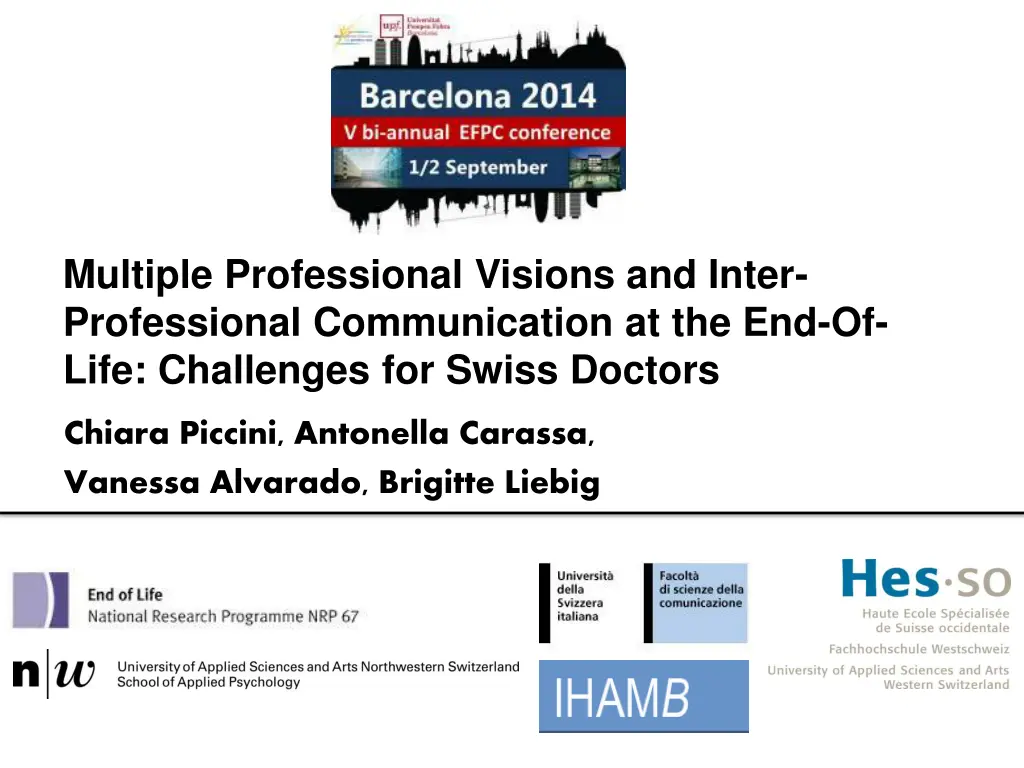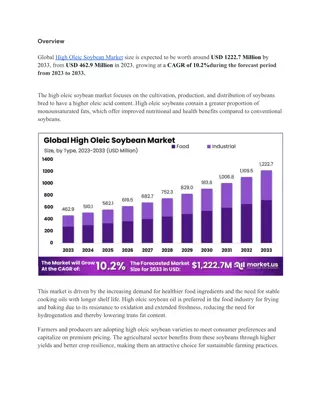
Challenges of Inter-Professional Communication in End-of-Life Decision Making
Explore the challenges faced by Swiss doctors in end-of-life decision-making through inter-professional communication. The research delves into the role of communication, main challenges, and strategies to address them. Findings highlight fragmented information affecting decision quality and care outcomes.
Download Presentation

Please find below an Image/Link to download the presentation.
The content on the website is provided AS IS for your information and personal use only. It may not be sold, licensed, or shared on other websites without obtaining consent from the author. If you encounter any issues during the download, it is possible that the publisher has removed the file from their server.
You are allowed to download the files provided on this website for personal or commercial use, subject to the condition that they are used lawfully. All files are the property of their respective owners.
The content on the website is provided AS IS for your information and personal use only. It may not be sold, licensed, or shared on other websites without obtaining consent from the author.
E N D
Presentation Transcript
Multiple Professional Visions and Inter- Professional Communication at the End-Of- Life: Challenges for Swiss Doctors Chiara Piccini, Antonella Carassa, Vanessa Alvarado, Brigitte Liebig
The Project NRP 67: End-Of-Life (SNF, 2011-2017) Project: Decision-Making in General Practice Settings at the End of Life (2012-2014) Piccini, Carassa, Alvarado & Liebig 2
Research Questions What is the role of inter-professional communication in end-of-life decision making? Which are the main challenges? Which are the possible strategies to face the perceived challenges? Piccini, Carassa, Alvarado & Liebig 3
Theoretical Framing Inter-professional collaboration is a qualitative indicator of end- of-life palliative care (Kauss et al. 1998, Binder/Wartburg 2009) Good communication practices as a condition of collaboration Inter-relationship between institutional framework (resources and constraints) and communication practice (Piccini/Carassa/Colombetti 2006) Professional visions (Godwin 1994) and communities of practice (Wenger 1998) 4 Piccini, Carassa, Alvarado & Liebig
Methods Case studies in 3 language regions of Switzerland, Expert Questionnaires, Expert Interviews Group discussions: 91 Family Doctors (FDs), 72 nurses, and 21 relatives Qualitative analysis of data, Grounded Theory (Glaser/Strauss, 1974) Perspectives of FDs, nurses, and relatives have been triangulated Piccini, Carassa, Alvarado & Liebig 5
Overview of Results Piccini, Carassa, Alvarado & Liebig 6
Findings Relevant information to make decisions appears to be fragmented Fragmented information challenges the quality of care at the end-of-life loss of decision making quality unreasonable aggressive treatments and painful death Spontaneous non-institutional communicative strategies prevent fragmentation of information Piccini, Carassa, Alvarado & Liebig 7
Discussion Communication practices rely on interpersonal relationship and the strategies are not elaborated enough with respect to defined processes This is critical in a globalized multicultural context, characterized also by frequent professional mobility A more flexible retribution system for doctors and arrangements in hospitals work organization may be useful Development of collaboration practices and alignment between visions Piccini, Carassa, Alvarado & Liebig 8

